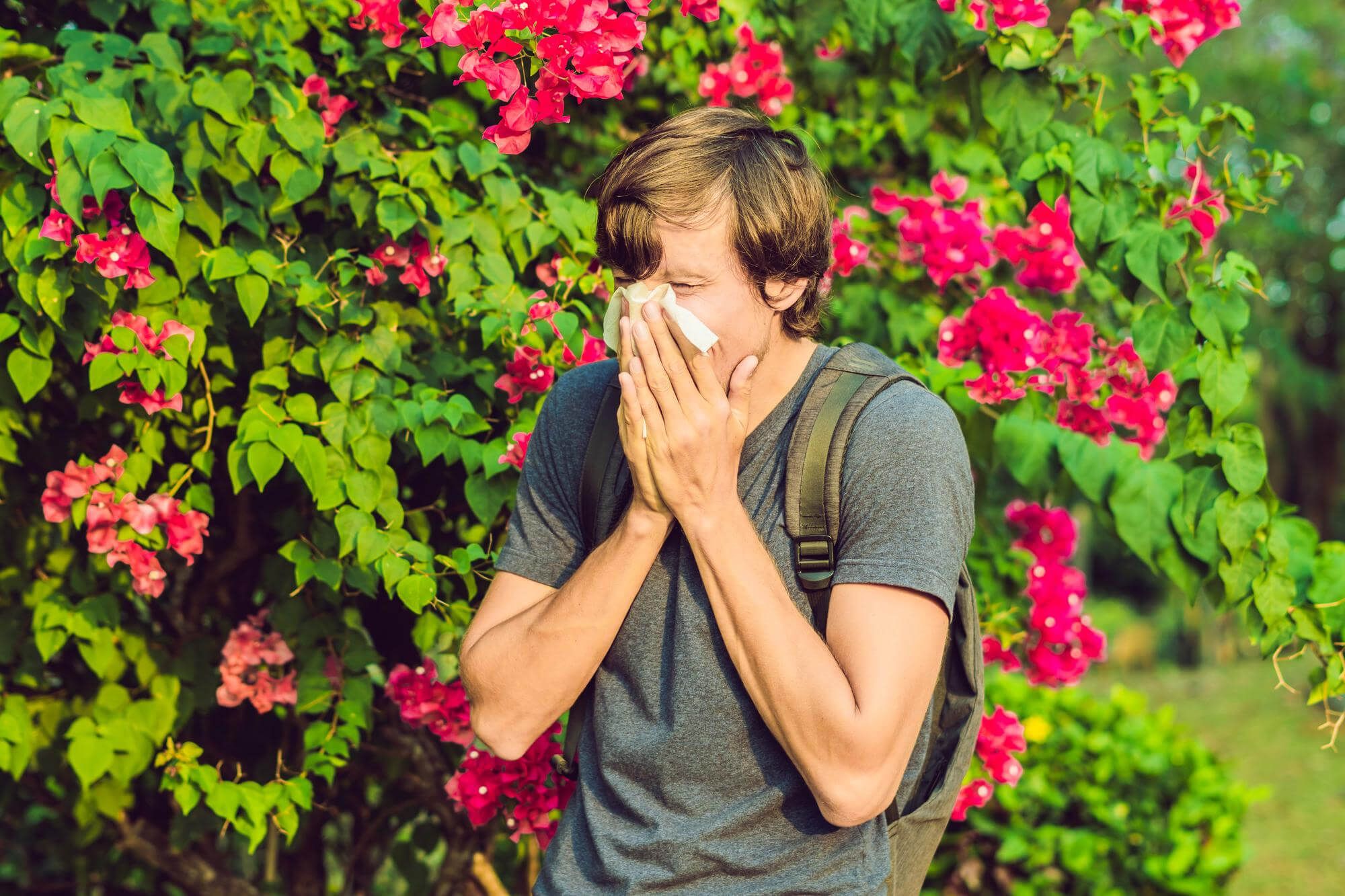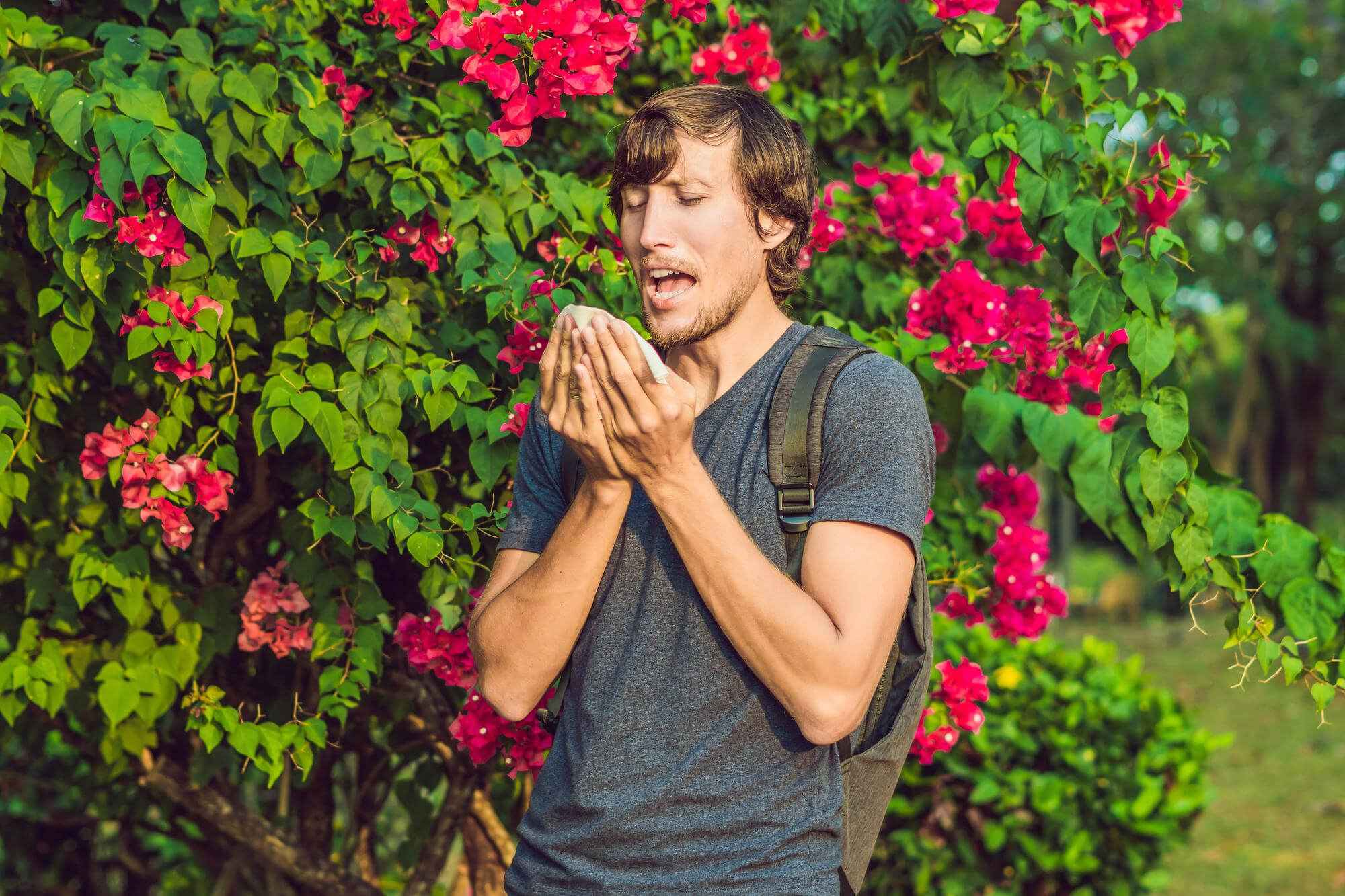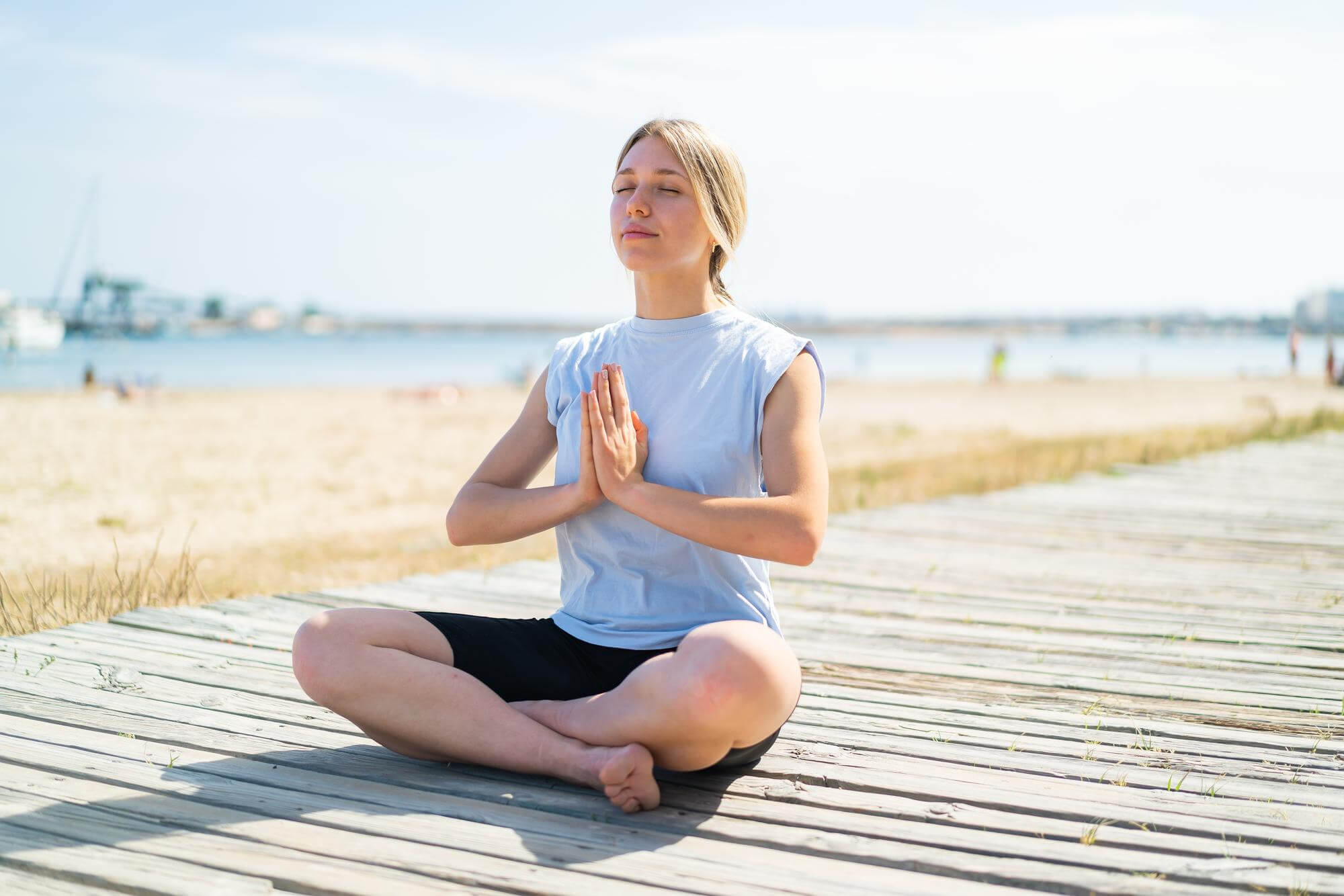Dealing with summer allergies: tips, treatment, and prevention


Irina Makarova
Summer is a time when many people experience unpleasant manifestations of allergies. What can cause allergies in July, what blooms in August, and what precautions should an adult take? In this article, an experienced allergist will talk about the main causes of summer allergies, their symptoms, and treatment methods.
What causes summer allergies?
Pollen from plants and trees
One of the main causes of allergies in the summer months, including July and August, is pollen from plants. In June, most grasses, such as cereals, alfalfa, and dandelions, begin to bloom. Allergy to pollen causes a condition known as seasonal allergic rhinitis, also known as hay fever.
Insect bites
Insect bites, such as mosquitoes, wasps, and bees, can cause allergic reactions in adults, especially those who are prone to allergies. The reaction to a bite may manifest as itching, swelling, and redness of the skin.
Sun allergy
Some people have an increased sensitivity to sunlight, which can cause allergies in the summer. Symptoms of such an allergy include rash, itching, and redness of the skin.
Common symptoms of summer allergy

- Itch and rash on the skin are among the most common symptoms of summer allergies. They can occur due to contact with allergens such as pollen, insect bites, or sun exposure.
- Allergic rhinitis, caused by plant pollen, manifests itself with symptoms such as nasal congestion, sneezing, itching in the nose, and abundant mucus formation.
- Contact of allergens with the eyes can cause allergic conjunctivitis, which manifests itself with tearing, itching, and redness of the eyes.
How to diagnose summer allergies?
If you suspect that you suffer from an allergy, consult an allergist. The specialist will conduct a diagnosis and determine what the allergy may be to in August or other summer months.
- The doctor may prescribe a blood test to determine the presence of antibodies to certain allergens. This will help identify what exactly causes the allergy.
- Skin tests are another way to diagnose allergies. During the skin test, small amounts of allergens are applied to the skin, and the skin's reaction to them is evaluated.
Prevention and reduction of summer allergy risk

- Avoid outdoor walks on days with high pollen concentration in the air. You can also install special applications on your smartphone that provide information about the pollen situation in your region.
- To reduce contact with allergens at home, use anti-allergic covers for mattresses and pillows, regularly perform wet cleaning, and change filters in air conditioners.
- Use repellents to prevent insect bites. Wear clothing that covers most of your body when in nature.
Proper Nutrition and Medications
Proper nutrition can help reduce the risk of allergies. Include anti-allergic foods in your diet, such as green tea, omega-3 fatty acids, curcumin, and quercetin, which have anti-inflammatory properties.
Antihistamines such as cetirizine, loratadine, or fexofenadine may be prescribed by a doctor to relieve summer allergy symptoms. They will help reduce itching, swelling, and other allergic reactions.
If you experience allergy symptoms, be sure to consult an allergist. He or she will develop an individualized treatment plan based on your medical history and the severity of your symptoms.
Alternative Methods of Treating Allergies

Immunotherapy
Immunotherapy is a treatment method that involves gradually acclimating the body to the allergen. Under the control of an allergist, the patient is given small doses of the allergen, gradually increasing them. This method can reduce sensitivity to allergens and alleviate allergy symptoms.
Folk remedies for allergies
Some folk remedies, such as herbal decoctions and infusions, can help with mild allergy symptoms. However, before using folk remedies, it is necessary to consult a doctor to avoid unwanted side effects or exacerbation of the allergic reaction.
Physiotherapy and Special Exercises
Physiotherapy and special exercises, such as breathing practices, can help improve the condition of patients with allergies. They contribute to strengthening the immune system, reducing stress, and improving overall well-being.
Summer allergies can become a serious obstacle to fully enjoying the warm months. However, by knowing what allergies may occur in July, August, and June and taking necessary precautions, you can reduce the risk of developing allergic reactions and improve your quality of life. Follow the recommendations for preventing allergies, monitor your well-being, and don't forget to regularly consult with an allergist. With a comprehensive approach to treatment and adherence to all of the specialist's prescriptions, an adult has every chance of successfully overcoming summer allergies and enjoying this wonderful time of year without limitations.
New materials
Popular Articles
We recommend reading
Contact us in the Contact Us section to ask questions, offer ideas, or for more information about our allergy resource.
Our articles are your trusted source of allergy knowledge. Learn how to make life with allergic reactions easier on our specialized portal.
©
Lechenie-Allergii.com. All rights reserved.
© Lechenie-Allergii.com. All rights reserved.
The information on this site is for informational purposes only and is not a substitute for professional medical advice. We recommend consulting with qualified medical professionals for accurate information and advice.
 English
English  Українська
Українська  Русский
Русский 









